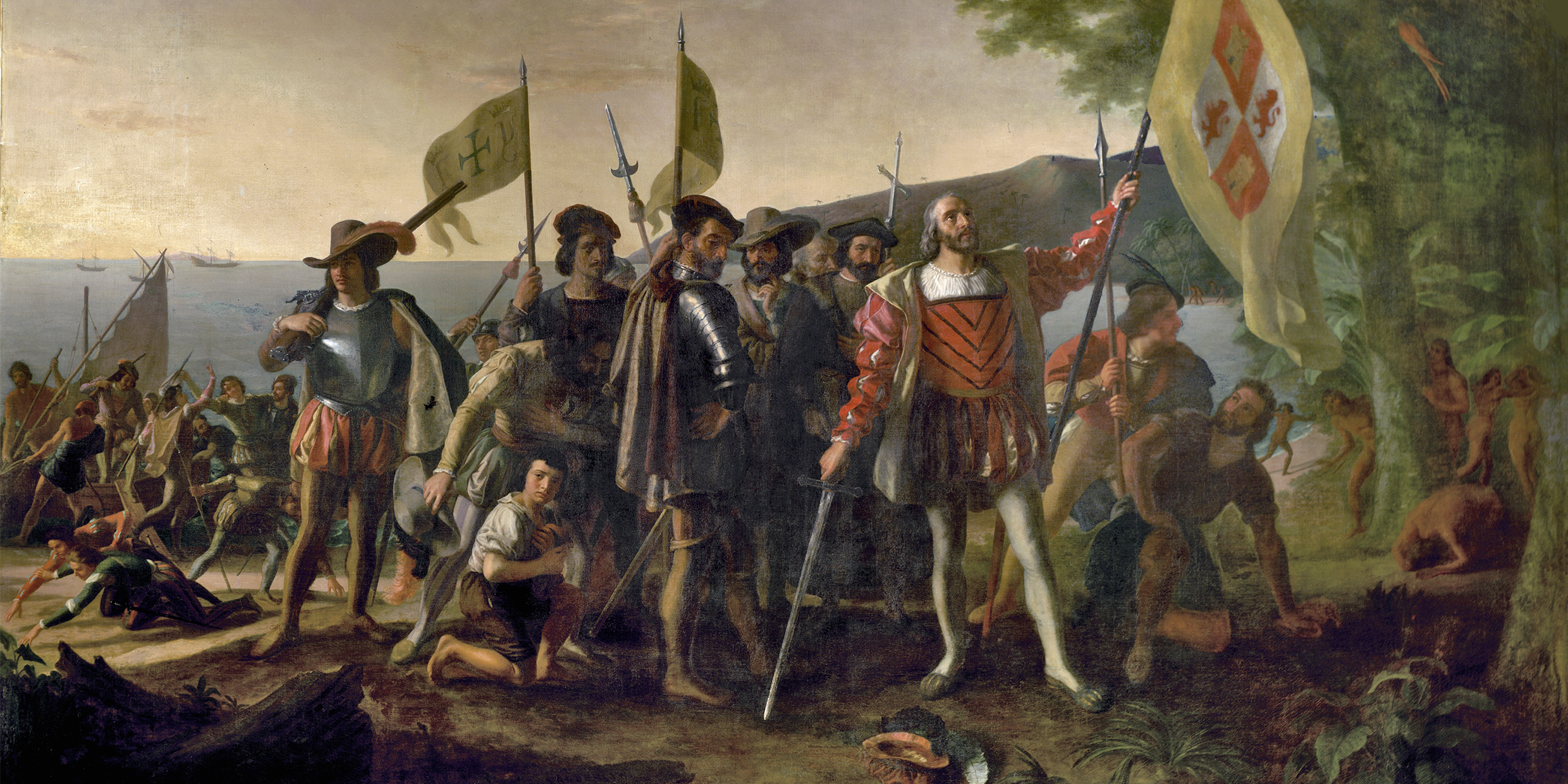Originally published 18 February 2003
My favorite picture book when I was a kid told the story of Christopher Columbus.
The illustration I liked best showed Columbus at the court of Ferdinand and Isabella, confounding hidebound churchmen and doubting scholars with solid, scientific reasoning. He is holding a small globe in his hand. “I believe the world is round,” he says to the monarchs. “Give me ships and I will prove it.”
This was the Columbus we knew as children: a light of reason shining into medieval darkness, an heir to Archimedes, a precursor of Galileo.
Of course, it was all a myth. Although Columbus adopted scientific thinking when it suited his purpose, he was more importantly motivated by an impassioned brand of millennial Christianity. He believed the End Times were near, and that he was God’s messenger, anointed to bring all peoples to Christ in a restored Zion. The prophecies of Isaiah and Ezra were as important to Columbus as the calculations of ancient Greek mapmakers, and if he was initially rejected at the court of Spain, it may have been as much for his religious fanaticism as for his geographical theories. After all, every educated person in the 15th century knew the world was round.
The European discovery of America — with subsequent encounters of peoples previously unknown to each other — was indeed a momentous event in human history. And Columbus’s navigational skills cannot be denied. But his voyage was put in motion by politics, not, as my storybook suggested, by “man’s relentless quest for knowledge.” The man who sailed from Palos, Spain, in 1492 was a pawn in the hands of imperial power.
The Spanish conquests in America were founded on an alliance of greed and evangelical Christianity. On the one hand, the expansive ambitions of the Spanish crown were stoked by an apparently inexhaustible American resource: oro, or gold. On the other hand, Europe’s “Most Christian Majesties” perceived it to be their duty to convert heathens to the “one true faith” and “civilized” values.
When Columbus appeared on their doorstep, Ferdinand and Isabella had just succeeded in driving the Moors from Spain after centuries of occupation. Throughout the Mediterranean basin, Christianity and Islam were locked in a clash of civilizations, and the antagonism between these two religions colored Spain’s relations with other non-Christians: black Africans and native Americans. All were infidels. All required the saving grace of Christ. All could be treated as less than human if Spain’s quest for wealth required it.
The horrendous consequences for the indigenous peoples of America need no retelling. What is less often commented upon are the injurious consequences for Spain — the profligacy, the overweening arrogance, the moral compromise, the shattering repudiation of Christ’s injunction to “love thy neighbor.”
It was inevitable that sooner or later the peoples of Europe and the Americas would come to know each other. There was indeed a scientific curiosity at work in 15th-century Europe that was reaching out into the unknown. Even in Columbus’s time, the Scientific Revolution was aborning, and with it new technologies with the potential to enhance the lives of all people. Globalization was afoot, and unstoppable.
So, what went wrong? A lack of restraint. A confusion of might with right. A sense of moral superiority.
It wasn’t scientific curiosity that took Columbus and his successors to America. What took Spain to the New World was unbridled political power claiming God’s favor and approbation, supported by evangelical Christians, armed with overwhelming technological superiority, and driven by an insatiable need for oro.
Could the new clash of civilizations have been resolved without a clash of arms? Could the peoples of the two hemispheres have merged into one people, without the extermination of one or the other, learning from each other, sharing wisdom and values?
Your answer depends, I suppose, upon your view of human nature.
My childhood storybook presented Columbus as we wish he might have been — a man exemplifying humankind’s highest aspirations of intellectual curiosity and moral courage. The message of the storybook strayed far from the truth, but the fact that we wrap ourselves so fervently in the Columbian myth suggests that we understand intuitively what we have the power to become.



